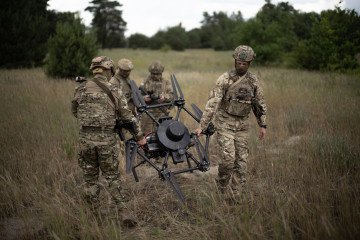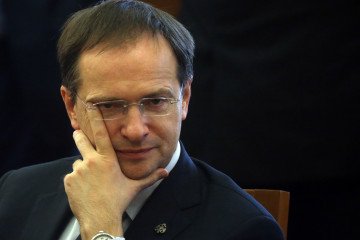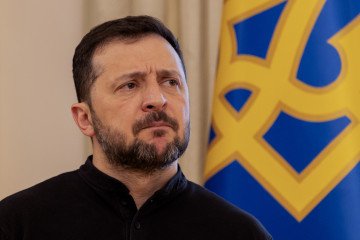- Category
- Latest news
U.S. and Russia Held Secret Talks on Reviving Nord Stream 2 Pipeline, Bild Reports

The U.S. administration is reportedly linked to secret discussions on restarting the flow of Russian gas to Germany, according to an investigation by German media outlet BILD on March 2.
Negotiations have allegedly been taking place in Switzerland for weeks, centering on a potential agreement between U.S. President Donald Trump and Russian leader Vladimir Putin. The plan involves using the Nord Stream 2 pipeline to transport Russian gas to Germany, with the U.S. acting as an intermediary.
The discussions center around Nord Stream 2, the 1,200-kilometer Baltic Sea pipeline, which has not been operational since Russia’s full-scale invasion of Ukraine in 2022. Once supported by Germany as an important energy link, the project has been controversial from the beginning, according to BILD.
Washington strongly opposed it, with then-U.S. Ambassador to Germany Richard Grenell leading efforts to pressure Berlin and the companies involved. The dispute over Nord Stream 2 fueled tensions between Grenell and then-German Chancellor Angela Merkel.
The pipeline was further compromised in September 2022 when one of its two lines was damaged in a sabotage attack. According to an internal report, repairs are possible and would take a few months, costing several hundred million euros—a fraction of the pipeline’s total investment.
Following Trump’s victory in the 2024 U.S. presidential election, he announced that Grenell would be handling “some of the world’s hottest conflict zones.” Shortly afterward, Grenell allegedly began traveling unofficially to Switzerland to discuss a gas supply arrangement, according to BILD.
The talks reportedly took place in Steinhausen, Zug, home to the operator of Nord Stream 2, which is backed by Russia’s state-controlled energy giant Gazprom.
According to the reported plan, the U.S. would act as a middleman, purchasing Russian gas and transporting it to Germany via Nord Stream 2. This arrangement would place Washington in control of Germany’s gas supply, while also allowing U.S. financial interests to profit from the deal, BILD reports.
The Nord Stream 1 pipeline, which was also damaged, is reportedly being considered for an alternative use, transporting green hydrogen from Finland—though these plans remain in early stages.
The U.S. government would not be directly involved, but American financial investors have expressed interest in the gas project. According to Swiss bankruptcy court records, multiple American bidders have filed inquiries about acquiring stakes in Nord Stream 1 and 2, both of which are now insolvent.
One of the interested parties is U.S. businessman Stephen Lynch, who has ties in Moscow and Washington. Lynch has publicly stated his intent to invest in Nord Stream 2, arguing that it would be beneficial for the U.S. to control gas flows to Germany.

According to a report by the Financial Times, Matthias Warnig, the former CEO of Nord Stream 2, is also involved in the preliminary discussions. Warnig, a former Stasi officer and close ally of both Putin and former German Chancellor Gerhard Schröder, denied participating in negotiations, stating that as a sanctioned individual, he follows all restrictions. The Kremlin declined to comment on the matter, BILD stated.
In January, a Swiss court granted Nord Stream 2 AG an extension until May 9, preventing the forced sale of the pipeline for now. The court cited geopolitical complexities, Trump’s return to office, and investor interest as key factors in its decision.
The German government has not been involved in the reported negotiations and has stated that it has no knowledge of Grenell’s meetings in Switzerland. Grenell has denied any involvement.
Earlier, in 2013, Russia expanded the Nord Stream pipeline despite Germany having sufficient gas supplies, focusing on Mecklenburg-Vorpommern through lobbying and financial incentives. A new book, Nord Stream by Steffen Dobbert and Ulrich Thiele, published on February 15, details how the project strengthened Russian influence and contributed to the Kremlin’s growing aggression.
-554f0711f15a880af68b2550a739eee4.jpg)

-c439b7bd9030ecf9d5a4287dc361ba31.jpg)

-111f0e5095e02c02446ffed57bfb0ab1.jpeg)

